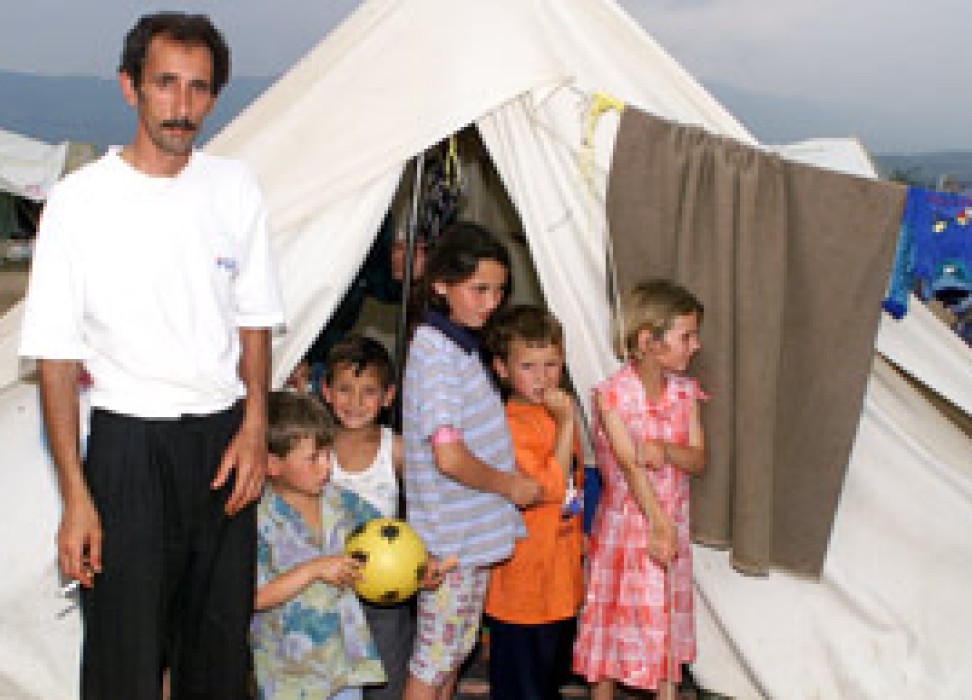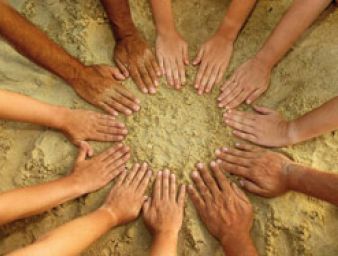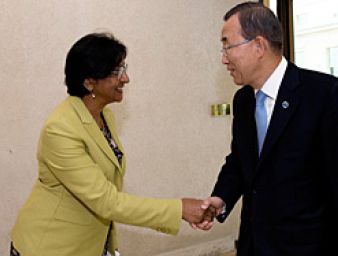The harms of gender stereotyping
20 June 2014

“Cultural attitudes and gender ideologies frequently regard women as subordinate to men, or dictate that men should control women,” said Navi Pillay, UN High Commissioner for Human Rights. “These attitudes may be so widely and deeply held within the community that they are almost invisible – except in their effects. For they perpetuate discrimination, violence and humiliation.”
Pillay was speaking at the annual day of discussion dedicated to women’s human rights during the 26th session of the Human Rights Council. She emphasized that deep-seated gender stereotypes about women’s roles were reinforced by decision-makers’ inability to make real commitments to change society’s preconceptions.
Dubravka Simonovic, Member of the Committee which observes States’ compliance with the Convention on the Elimination of all Forms of Discrimination against Women (CEDAW), stressed that the Convention’s key purpose was to achieve substantive equality between men and women. For that purpose, the Convention recommends to States to abolish discriminatory laws and modify discriminatory social norms.
Simonovic told participants that article 5a of the Convention obliges States to eliminate discriminatory stereotypes based on socially constructed roles and attributes associated with gender. Further, article 5b recognizes the common responsibility of men and women in the upbringing of their children. “This addresses the need to change stereotypes about the mother as the nurturer and the father as the bread winner that are most strongly replicated in family roles in relation to child rearing,” she said.
The UN Human Rights Office commissioned Simone Cusack to analyse how stereotyping in the judiciary undermines justice for women, in particular in cases of gender-based violence.
The study revealed the five ways in which this occurred. First, it compromises judges’ impartiality. It also influences their understanding of criminal offences and their perception on whether violence has occurred in cases such as the rape of sex workers, of married women by their husbands, or domestic violence in same-sex relationships.
Stereotypes affect judges’ views about witness credibility or legal capacity. Such is the case when judges form a negative view about the credibility of the victims who do not behave in a stereotypical manner.
Further, stereotyping can also stop judges from holding perpetrators accountable or even cause them to blame the victim. Finally, stereotyping can impede access to legal rights and protection for victims of violence. The R.P.B v. Philippines case presented to CEDAW under the individual complaint procedure, Cusack mentioned, highlighted many of these harms. The rapist of a deaf and mute 17-year-old girl was acquitted by the court because the Judge expected the victim to fight her aggressor in order to protect her purity.
Speaking of the impact of stereotypes on the reproductive and sexual health and rights of women and girls, Veronica Undurraga, Law Professor at Adolfo Ibañez University in Santiago, Chile, said that there was a belief that girls should not manifest any interest in sexuality, whereas male teenagers were expected to be more vocal and aggressive.
“Both young male and female adolescents should receive sexual education in order to prevent pregnancies and abortions among girls who are more often the victims of sexual coercion,” Undurraga said. “Education health systems should respect the needs of girls who seek information and access to reproductive health services.”
Undurraga also highlighted the idea that married women should always be available for their husbands, denying them the rights to decide when they wish to engage in sex. They can also be vulnerable to violence perpetrated by their husbands, which is often not punished in the courts.
The Executive Director of the Ethiopian Centre for Disability and Development, Yetnebersh Nigussie, said that women with disabilities had long been overlooked in the gender movement and that they had to deal with compounded stereotypes because of their gender and their disability.
“There is a challenge of proving two layers of humanity in order to be accepted as a woman with disabilities in this world,” she said. “First they have to prove that they are a person, before their disability, and also that they are a woman.”
Nigussie highlighted that women with disabilities are believed to be sexually inactive and therefore unsuitable for marriage. They are also the least likely to acquire an education for fear that they could be abducted, raped or subject to other forms of violence in school. Further, women with intellectual disabilities in particular, including when they are victims of sexual violence, were seldom considered reliable witnesses in courts.
Todd Minerson, Executive Director of the White Ribbon Campaign and moderator of the discussion noted that lesbian, gay, bisexual and intersex women, sex workers, women with problems of substance abuse, migrant women and indigenous women should also be considered when talking about compounded gender stereotypes.
His organization, which is the world’s largest coalition of men and boys against violence against women, endeavours to transform the harmful understanding of masculinity that permeated the violence. It also works for the recognition that the gender equality struggle must also be fought by men and boys.
20 June 2014




